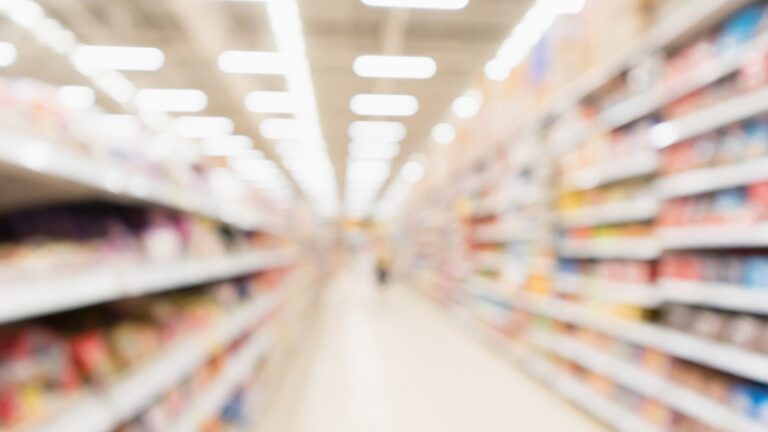PepsiCo's Frito-Lay, Quaker and beverage businesses suffered weak revenue growth and declining volumes, despite revenue and volume growth in international markets. Sales volumes at Frito-Lay North America, PepsiCo Beverages North America and Quaker Foods North America declined 3%, 4% and 20%, respectively.
With 27% of PepsiCo's net sales coming from Frito-Lay, the company “will need to increase investments in promotional discounts beyond its original plan to improve volume trends,” financial services firm TD Cowen said in a recent white paper.Sales of Frito-Lay salty snacks fell 0.7% in the 12 weeks ended June 1, a 50 basis point decline, according to TD Cowen retail tracking data.
TD Cowen lowered its price target to $190 from $200 previously. PepsiCo's stock price fell after the quarterly earnings report. PepsiCo's stock price was trading at $161.36 as of 10:08 a.m. EST on July 11, down from a previous closing price of $163.59.
“Part of the portfolio needs a value adjustment.”
Last year, PepsiCo, like many other CPG companies, raised prices on many of its products to keep up with inflation and supply chain expenses, raising prices by 5% in the second quarter of 2024.
Mr. Laguarta acknowledged that some price cuts and promotions may be necessary for Frito-Lay products, but he opposed widespread price cuts.
“Part of the portfolio needs a value adjustment. Part of the portfolio doesn't. … We need a new entry price point and maybe a new promotional mechanism where consumers aren't expected to invest so much cash to buy saltines.” [snacks]”So there is an adjustment needed for certain consumers, parts of the portfolio. I don't think there is a need to reset the entire portfolio. It's a matter of segmentation, it's a matter of doing the segmentation well. … After three or four years of significant inflation, there is some value to give back to the consumer,” Laguarta said.
The Quaker Oats product recall continues to impact PepsiCo, [the company’s] “Total organic revenue growth was 6.3% in the second quarter,” the company said in prepared remarks. PepsiCo expects Quaker Oats' supply chain to recover to “near 100%” by the fourth quarter of 2024, Laguarta said on an investor call.
Clean-label functional products offer 'good runway'
PepsiCo's Gatorade business continues to cede market share to category newcomers like Prime, but its other drinks are growing. The Mountain Dew brand has “returned to growth” with the permanent addition of the fan-favorite Baja Blast flavor to the portfolio, Laguarta said on an investor call.
PepsiCo continues to incorporate more sugar-free products into its portfolio, including Gatorade, soft drinks, teas and coffees, he added. PepsiCo previously committed to having 67% of its beverage portfolio have 100 calories or less of added sugar per 12-ounce serving by 2030 as part of its PepsiCo Positive (pep+) corporate strategy.
“The zero portion of the portfolio is booming. Given consumer trends, obviously we know where it's going. We know it internationally and we know it's going to happen here in the U.S. eventually,” Laguarta said on an investor call.
Additionally, PepsiCo sees opportunity in functional energy drinks with health benefits, Laguarta noted during the investor call. Earlier this year, PepsiCo's Rockstar brand launched Lionsman and Rockstar Energy Focus, a functional energy drink with 200 mg of caffeine per 12-ounce can.
“We can provide energy in a consumer-friendly way, including price… but functionality is [and] “Clean label is what a lot of the category has been working on. This should be a good trajectory for this segment of the category. It has created value for many of us who are participants in this, including our retail partners and brand owners,” Laguarta said on an investor call.
PepsiCo to focus on 'productivity initiatives, disciplined commercial investments' in the second half of 2024
PepsiCo reported net revenue growth of 0.8% for the second quarter of 2024, ending June 20, 2024, down from 2.3% in the first quarter of 2024. Similarly, organic revenue growth slowed in the second quarter, to 1.9% from 2.7% in the previous quarter, and to 2.3% for the full year.
PepsiCo now expects organic revenue growth of about 4% this year, up from a previous forecast of at least 4%. Additionally, the company now expects core constant currency earnings per share (EPS) to grow by at least 8%, in line with previous guidance.
“During the second quarter, our operations delivered increased net revenue, strong gross and operating margin expansion and double-digit EPS growth, remaining agile despite challenges in achieving year-over-year net revenue growth, weak performance in our North American convenience foods division and impacts related to the recall of certain products at Quaker Foods North America,” Laguarta said in a press release.
He added, “Throughout the remainder of the year, we will further strengthen and accelerate our productivity improvement efforts and make disciplined commercial investments in the market to stimulate growth. These investments will be focused on strategically delivering the optimal value proposition in specific parts of our North American ready-to-eat food portfolio, expanding our advertising and marketing efforts, and leveraging our go-to-market distribution capabilities to enable more precise market deployment.”

